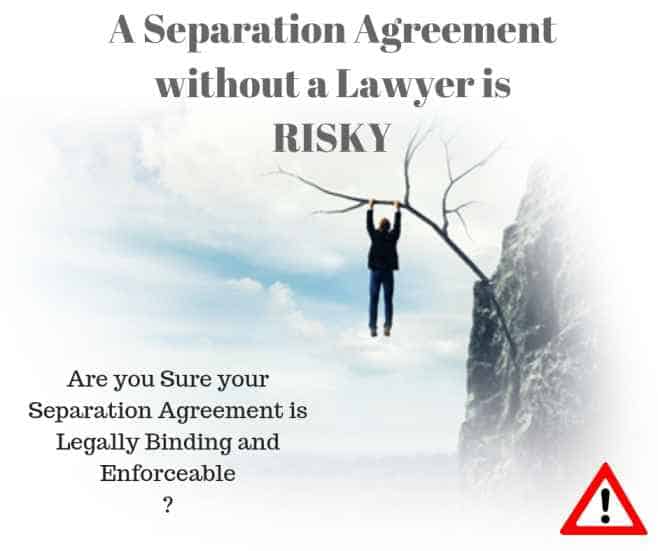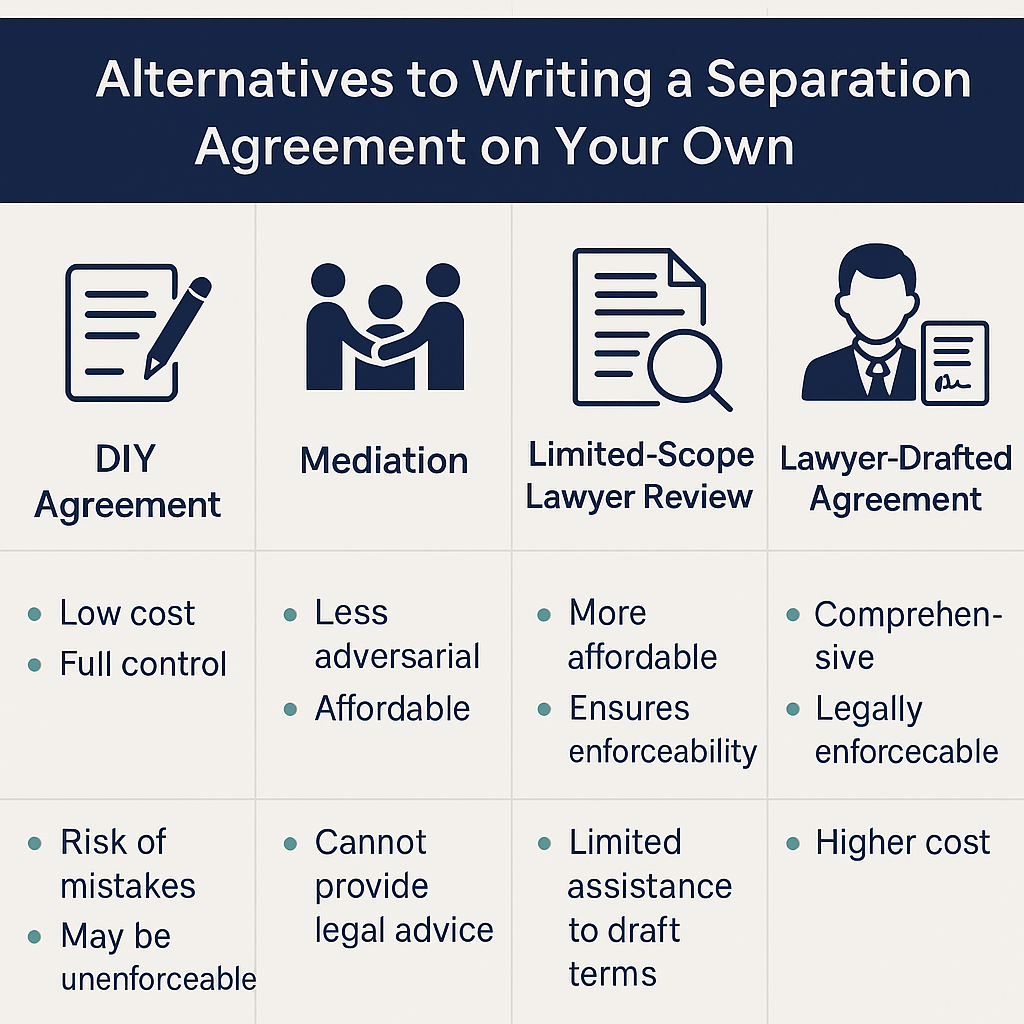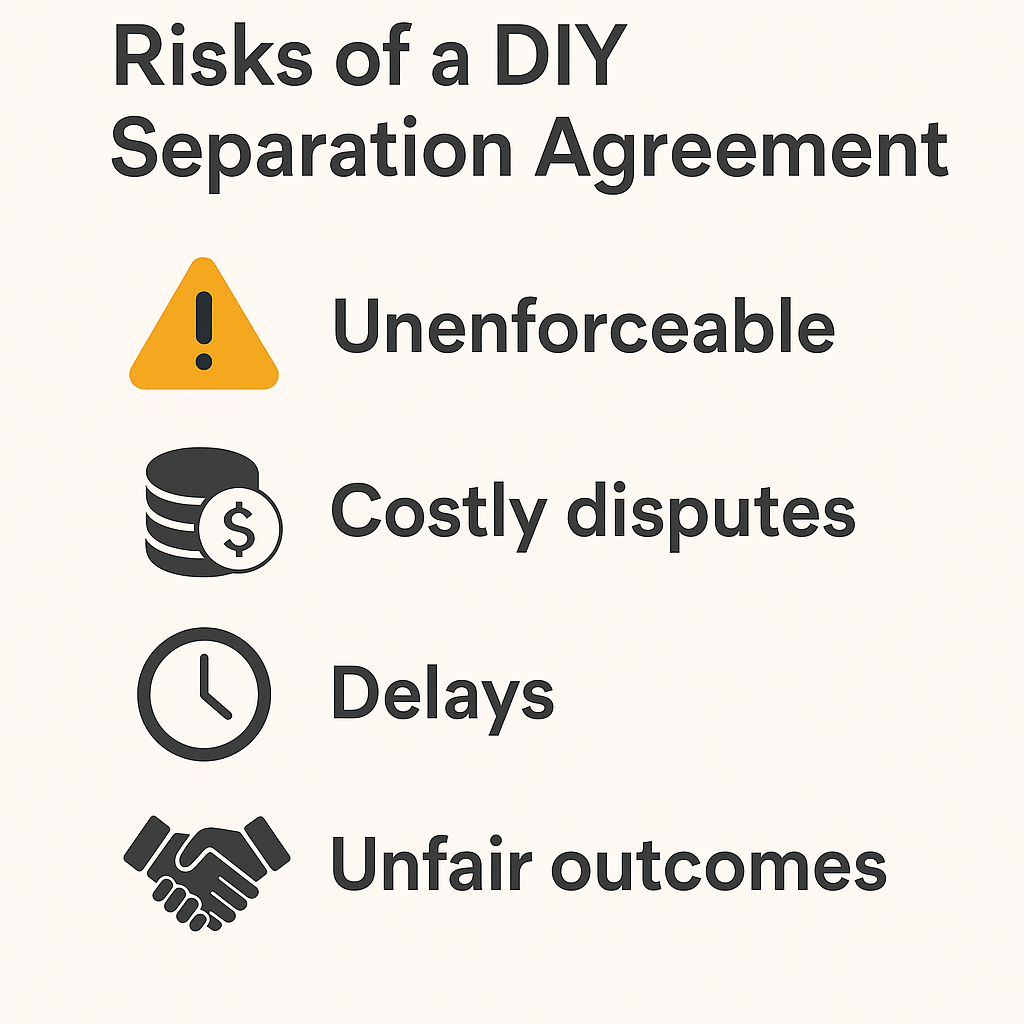Yes, a Separation Agreement is legally Binding in Ontario. In fact, Judges, as well as the Legislature, encourage parties to settle their disputes by way of a Separation Agreement. Since it gives the parties sufficient opportunity properly negotiate the terms of the agreement. The Family Law Act, R.S.O. 1990 specifically states that a separation agreement would prevail over the provision so the Law was passed by the Parliament. It is stated under 2(10)of the Family Law Act, R.S.O. 1990 “A domestic contract dealing with a matter that is also dealt with in this Act prevails unless this Act provides otherwise. R.S.O. 1990”.
In a number of court decisions, Judges have shown their inclination to upload the terms of the Separation Agreement. It would be safe to say that as a General Rule a Separation Agreement is Legally binding in Ontario. In some situations, a Judge can set aside terms of a Legally Bind Separation Agreement if the Judge is satisfied that either;
- The Parties to the Separation Agreement did not make a full and frank financial disclosure. One of the parties did not provide a complete list and value of all assets and liabilities, including complete details of the expenses and support received from the Government, Or
- The terms of the Agreement are not in the best interest of the Child, Or;
- The terms of the Agreement are plainly unfair in the eyes of Law, such as a situation where one spouse gives up on her lawful right for spousal support without any compensation whatsoever causing her to face hardship.





